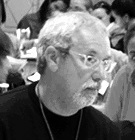We’ve known for years, from both experience and research, that promoting youth participation is important. That is why youth participation and youth voice and leadership is at the heart of most afterschool quality standards.
“Participation is a broad term, encompassing several dimensions…We understand youth participation as a constellation of activities that empower adolescents to take part in and influence decision making that affects their lives and to take action on issues they care about.” (1)
 |
| Source: Youth Development Guide for Afterschool 2.0 |
We also know that promoting youth participation is not easy or intuitive. Further, there are myths surrounding youth participation that discourage program efforts. Below, we quote (in italics) a paper by Jennifer L. O’Donoghue, Benjamin Kirshner, Milbrey McLaughlin entitled Moving Youth Participation Forward. This paper was originally published in New Directions for Youth Development (1). It outlines four such myths and discusses key issues facing supporters of youth participation.
Myth 1: Youth participation is accomplished by placing one youth on a board or committee
Inserting one or a few youth into an adult-created and adult– driven process runs the risk of involving youth as tokens or “decorations,” precluding any opportunity for meaningful participation or substantive influence. An authentic process is not one that is determined solely by adults. Rather, youth need multiple spaces for engagement. In this way, youth participation efforts can tap into the interests, passions, and skills of young people. Alternative points of entry can also open the space for youth to redesign and recreate the institutions that influence their lives.
In addition to the risk of tokenism, involving a few youth as representatives of larger groups may result in exclusivity, whereby only the most privileged or skilled youth are chosen to participate.
Myth 2: Youth participation means that adults surrender their roles as guides and educators
Too often, discussions of youth participation are silent about the
roles that adults must play as supporters and educators…..Adults play critical roles in providing guidance and connecting youth with needed information and resources.
Myth 3: Adults are ready for youth participation
Adults need to adapt to youth participation as much as (if not more than) youth do. This requires ongoing training and development of adults in how best to support youth and fulfill their roles as adult allies. Successful youth-adult partnerships recognize the importance of supporting adult learning and change to nurture effective youth participation. A greater challenge, however, may come from the need for adults to change their frames, that is, their understandings of youth and how to work with them.
Myth 4: Youth are ready to participate; they just need the opportunity
Youth need more than opportunity- they need training. This training includes domain-specific skills. Projects that involve youth in program evaluation, for example, need to train youth in research methods, such as interviewing or data analysis, which typically are not part of a regular school curriculum.
Youth preparation also includes the development of broader skills. To engage meaningfully in decision-making, youth (like adults) may need workshops and practice in facilitation, public speaking, and collaborative processes.
Conclusion
This paper speaks to the need for honest discussion and analysis around issues of power. It offers guiding questions that will be crucial to understanding and strengthening youth participation efforts in afterschool programs:
- Are adults prepared to involve youth in meaningful ways?
- Are they prepared to look critically at patterns of privilege and exclusion that cut across age, race, ethnicity, class, gender, sexual orientation, and ability?
- How will they build structures and processes that work to overcome these?
- Are they ready to change, taking on roles as allies and partners rather than just directors or instructors?
- Equally important, are youth prepared to take on their roles as decision makers and public actors? Do they have access to the necessary knowledge and skills?
You can learn more about meaningful youth participation, how to assess for it, and staff development exercises by going to Youth Development Guide for Afterschool 2.0.
------
(1) [O' Donoghue, J., Kirshner, B., & McLaughlin, M. W. (2003). Moving Youth Participation Forward. New Directions for Youth Development: Theory, Practice and Research, No. 96. San Francisco: Jossey-Bass (Wiley Periodicals, Inc.).]






No comments:
Post a Comment